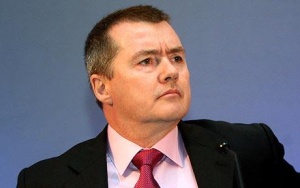IATA 2011: Willie Walsh warns EU of new emissions trading scheme

BA and Iberia boss Willie Walsh has warned that the EU must delay plans to charge non-European airlines under the emissions trading scheme in order to avoid a trade war between the EU and the US and China. He has also called instead for a global ETS.
Speaking at the IATA AGM in Singapore, Walsh, the chief executive of British Airways and Iberia parent International Airlines Group, said that if major aviation players are forced to pay for CO2 emission to and from Europe, they could impose reciprocal aviation taxes on European carriers or block flights.
Walsh’s warning comes as US carriers launch a European legal challenge against the ETS next month, whilst China and Russia have also made noises against the EU about the new legistlation.
Walsh told delegates at the conference: “It is clear that the countries are going to retaliate, whether in the form of imposing additional taxes on European airlines or restricting access to markets.”
Carriers must join the scheme from the start of 2011, and will have to pay for carbon dioxide emissions that exceed a certain threshold by acquiring credits. Passengers on European airlines will face price increases of up to €40 (£35) per return fare.
ADVERTISEMENT
He added: “The uncertainty will add more cost. It will add more concern in the mind of travellers that they will face disruption to services and I think there is a real risk this could happen.”
Walsh said Brussels should resort to a “plan B” that will charge carriers for regional and domestic flights only. “There needs to be a plan B. It is unacceptable that airlines face the prospect of retaliation because of the actions of the EU. Plan B for me would be to restrict the scheme to intra-Europe.”
Willie Walsh warned that European carriers will bear the brunt of the impact from high fuel costs, with some operators going out of business.
He also said that soaring fuel costs could lead to a repeat of 2008 when oil spiked at $147 a barrel, leading to the collapse of a number of airlines.
He said: “I fully expect that to happen. I think the high oil price is something that poses a real challenge to the industry. There are lots of airlines that will struggle in a high oil price environment.”
“Some will suffer more than others, such as those airlines operating in economies that are weaker. The strength of the global economy is driven by Asia and Latin America to a large degree so airlines operating in those areas will be less affected than airlines operating in a European context. It is likely to have more of an impact in Europe than in other parts of the world.”

